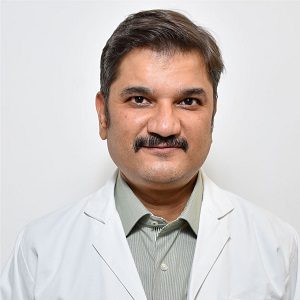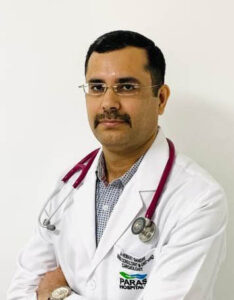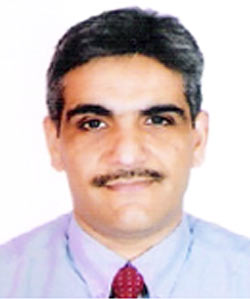Best Doctors in India for Alcoholic Hepatitis Treatment
- Cardiologist, Gurugram, India
- Over 16 years’ experience
Profile Highlights:
- Dr. Kuldeep Arora is a promising cardiologist in Gurugram. He is a specialist in radial angiography and angioplasty.
- Dr. Kuldeep Arora has expertise in Interventional Cardiology and performed around 12,000 therapeutic cardiac interventions.
- He also assisted with the device closure of atrial septal abnormalities, Pacemaker implantations, ICD, and CRT, besides management of heart attacks.
- Cardiovascular Surgeon, Cardiac Surgeon, Gurugram, India
- Over 32 years’ experience
Profile Highlights:
- Dr. Vijay Kohli is one of the best cardiac surgeons in India. He has brought an evolution in the spectra of Cardiac Surgery, wherein, he was the first leading surgeon to perform CABG on a beating heart in Kathmandu, Nepal.
- Vijay Kohli performed the first coronary artery bypass surgery in Jammu Medical College in 2001.
- Nephrologist, Gurugram, India
- Over 20 years’ experience
Profile Highlights:
- Dr. Suman Lata Nayak is one of Delhi’s most prominent Transplant physicians and was the founder of the Nephrology Department at the Institute of Liver and Biliary Sciences.
- Throughout her career, she has been actively involved in clinical research. Dr. Suman Lata Nayak’s research in the field of kidney transplantation, TB, and liver disease in patients, has made a significant impact on improving protocols in India.
- Additional Director Cardiology
- 15 Years Experience
Profile Highlights:
Profile Snapshot of Dr. Hemant Gandhi
- Hemant Gandhi is a distinguished figure in the field of interventional cardiology with over 15+ years of extensive experience.
- He is recognized for his proficiency in handling cases involving congenital heart defects such as ASD and PDA, along with peripheral angiography, angioplasty, and balloon valvuloplasty.
- Gandhi holds the distinction of being the first D.M. (Cardiology) candidate to graduate from the prestigious PGIMER and Dr. RML Hospital, New Delhi.
- Beyond his clinical practice, he is actively engaged in the education and training of medical students in the specialized domain of Cardiology.
- His contributions to academia are further underscored by a significant number of publications that enrich the field with his insights and research findings.
- Oral & Maxillofacial Surgeon
- Over 25 years' experience
Profile Highlights:
- With more than 25 years of expertise, Dr. Neeraj Singh is a skilled oral and maxillofacial dentist based in South Delhi.
- He offers excellent care for common oral issues such as fillings, dental implants, and extractions of teeth.
- Singh also specializes in more sophisticated procedures including cosmetic dentistry and orthodontic treatment for people who wish to improve their smile or take care of structural difficulties.
- Apart from that Dr. Singh is also efficient in performing oral procedures such as endodontic surgery, apicoectomy, and impaction/impacted tooth extraction. Modern tools and technology are used by him to guarantee that his patients get the greatest treatment possible.
- As one of South Delhi’s top endodontists, dental surgeons, and cosmetic/aesthetic dentists, Dr. Neeraj Singh has built a solid reputation. Under his direction, patients in South Delhi who are looking for specialized dental care may feel secure knowing that they are getting the best care possible.
- Rheumatologist
- Over 15 years' Experience
Profile Highlights:
- Dr. Sumeet Agarwal is a well-known name in the field of rheumatology and clinical immunology, presently serving as the Head of the Department at Artemis Hospital in Gurugram.
- With an experience spanning more than 15 years, Dr. Sumeet Agarwal has established himself as a leading expert in the treatment of autoimmune diseases, specializing in conditions such as lupus, scleroderma, vasculitis, arthritis, and many more.
- Throughout his career, Dr. Agarwal has been at the top of innovation, having been the pioneer of several rheumatological approaches, such as intra-articular injections, soft-tissue injections, skin biopsy, muscle & nerve biopsy, minor salivary gland biopsy, etc.
- He has received several honors and distinctions in his training as well as professional career.
- His dedication to improving medical procedures has only raised the bar for the industry while simultaneously improving patient outcomes.
Best Hospitals in India for Alcoholic Hepatitis Treatment
ALCOHOLIC HEPATITIS
Alcoholic hepatitis is a liver infection, which is mainly caused by frequent, heavy use of alcohol. Fat can build up in the liver cells, which might lead to inflammation as well as scarring of the liver.
Alcoholic hepatitis might be mild or severe. A patient might even need a liver transplant if proper treatment is not provided, or if they don’t stop consumption of alcohol.
It is also notable that all heavy drinkers don’t develop this condition, and sometimes this condition even develops in people who drink moderately. However, if you are diagnosed with this condition, it is important for you to quit drinking alcohol. People who continue drinking alcohol might face a huge risk of serious liver damage as well as death.
Symptoms
Depending on the amount of damage to the liver, the symptoms can vary. If you are having a mild form of the disease, you might not even experience any symptoms at all. However, as the damage continues to grow, you might experience the following:
- Changes in appetite
- Dry mouth
- Weight loss
- Pain or swelling in the abdomen
- Jaundice, or yellowing of the skin or eyes
- Fever
- Nausea and vomiting
- Easy bleeding or bruising
- Changes in your mental state, including confusion
- Fatigue
The symptoms of this condition are similar to those caused by a few other health conditions. Therefore, if you develop any of these symptoms, it is best to get a proper diagnosis as well as begin treatment.
Causes & risk factors
Alcoholic hepatitis generally develops when the alcohol you drink causes damage to your liver. However, it is not clear why alcohol does this damages only to some heavy drinkers.
Few factors that are known to play a role in this condition include:
- The body’s process that breaks down alcohol produces some toxic chemicals
- These chemicals can trigger inflammation that can destroy the liver cells
- Thus, over time, scars replace healthy liver tissue, thus interfering with the function of the liver
- This irreversible scarring, which is also termed cirrhosis, is the final stage of alcoholic liver disease
If you have hepatitis C and continue to drink, even moderately, you are more likely to develop cirrhosis.
Some heavy drinkers are also malnourished because they don’t eat a proper balanced diet. Alcohol and its byproducts also prevent the body from absorbing nutrition properly. Lack of nutrition can contribute to liver cell damage.
Some other risk factors that can lead to this condition include:
- Your sex- Women are usually at a higher risk of developing alcoholic hepatitis since the way alcohol is processed in women is different.
- Binge drinking- Having over five drinks within two hours for men and four or more for women can increase the risk of alcoholic hepatitis.
- Obesity- Heavy drinkers who are overweight are also more likely to develop alcoholic hepatitis and to progress from that condition to cirrhosis.
- Race and ethnicity- Hispanic and Negroid people might be at higher risk of alcoholic hepatitis.
- Genetic factors- According to studies, there may be a genetic component in alcohol-induced liver disease. However, it is difficult to separate genetic and environmental factors.
Diagnosis
If you are showing symptoms of alcoholic hepatitis, your doctor will first inquire about your medical history and alcohol consumption. Next, he/she will perform a physical exam to see if you have an enlarged liver or spleen. They might also need a few more tests to confirm your diagnosis, such as:
- Complete blood count (CBC)
- Liver function test
- Ultrasound of the liver
- Abdominal CT scan
- Blood clotting tests
In some cases, a liver biopsy might also be needed to confirm the diagnosis of alcoholic hepatitis. A liver biopsy requires your doctor to remove a tissue sample from your liver, which is then tested in the lab. This method helps to show the severity and type of liver disease.
Treatment
Stopping alcohol consumption is the most important treatment for alcoholic hepatitis. There is no cure for this condition, but treatment can help in reducing or eliminating symptoms, or stopping its progression.
It is also important to note that scarring of the liver is permanent, but treatment can aim to restore as much function as possible.
Dietary changes
Medication
Liver transplant
The best hope of recovery is to be aware of the signs and symptoms as well as to reduce, manage, or if possible, completely stop consumption of alcohol.
Complications
Alcoholic hepatitis might lead to severe other complications such as:
- Enlarged veins (varices)- In this condition, blood that is unable to flow freely through the portal vein, can back up into other blood vessels in your esophagus or stomach.
- Hepatic encephalopathy- This condition can be caused by the buildup of toxins if your damaged liver is unable to remove all the toxins from your body. It involves confusion, drowsiness, and slurred speech.
- Ascites- Ascites is a condition in which the fluid that accumulates in the abdomen may get infected and thus, require treatment with antibiotics. Although this condition is not life-threatening, it can be a sign of advanced alcoholic hepatitis, or cirrhosis.
- Kidney failure- A damaged liver affects blood flow to the kidneys, thus resulting in kidney failure.
- Cirrhosis- The scarring of the liver might lead to liver failure.
Prevention
Alcoholic hepatitis might be prevented if you take the following steps:
- Drink alcohol in moderation, if at all- For healthy adults, moderate drinking means no more than one drink a day for women of all ages and men older than 65, and not over two drinks a day for men aged 65 and younger. However, if you prevent all alcohol, it is a certain way to prevent this condition.
- Check before mixing medications and alcohol- Ask your doctor if it’s safe to drink alcohol while you are taking medications. Consider reading the warning labels on over-the-counter medications as well. Don’t drink alcohol when you are taking medications that warn of complications when combined with alcohol.
- Protect yourself from hepatitis C- Hepatitis C is an infectious liver disease that is caused by a virus. If it is left untreated, it may lead to cirrhosis. If you are having hepatitis C and you consume alcohol, you’re generally more likely to develop cirrhosis than if you don’t drink.











